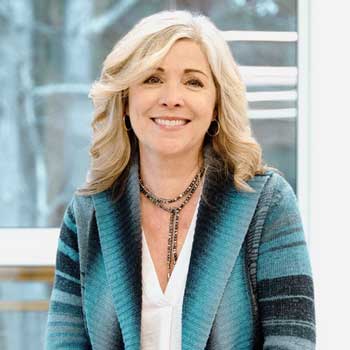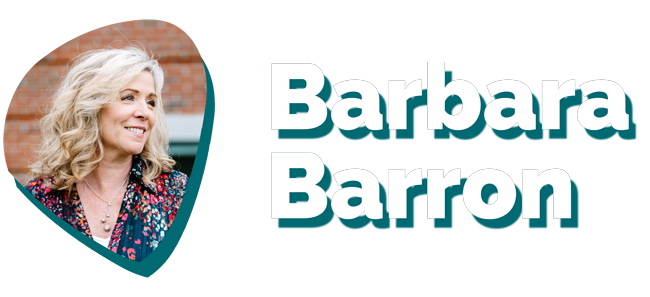by Barbara Barron | Posted April 5th, 2023 | Subscribe to this newsletter

In our work as advancement professionals, we are required to work — and work well– with a development or advancement committee. It’s simply not an option.
When that working relationship is good, it can be a huge source of support. When it’s not, it can be a misery.
But in the spirit of spring and the many possibilities we all feel at this time of year, I’m going to go high here and write about the features that define a great advancement committee.
Any and all of these actions can be introduced into an existing – and less than optimal – committee’s duties. You may need to start slowly. But like with so many things, if you can get the buy-in from one person (ideally the chair), you’re on your way to creating a high-functioning and super-productive committee.
It may even become the committee on which other trustees wish to serve. Winning!
So, let’s get into it.
Have you subscribed to this newsletter yet? It only takes a minute.
Ten Tips on How to Build a Great Advancement Committee
At some schools where I have worked, there is a requirement that all new trustees serve on the advancement committee for the first year of their first term.
I have advocated for that position because I have seen how quickly these good people get familiar and fluent with the program as a result. This is an essential skill if they are going to be helpful throughout their terms of service. It’s like taking them through Development 101. And while you may end up with a large committee, it’s ultimately worth the extra work to help them establish good habits from the start.
Regardless, here are some tasks you can set before this group, starting in August when you first convene. These are actions that actually help. They build connections with families. They extend the cultivation and stewardship work your team is doing.
It can be like you’ve expanded your office by a few part-time people! And – bonus points – most of these tasks are easy and, dare I say, even fun to do:
1. Learn the workings of your program. This means that everyone understands what works and why. Provide them with a bit of history to explain the reasons we do things a certain way. “What you do” and “what you don’t do” are equally valuable to explain. This helps to stop “suggestions” like: “Let’s write to all our alumni and ask them to give $100 each!” No. Never.
2. Review the roster of new families. Have them report to you who they know and how they know them.
3. Call the new people they know and welcome them to the school. A hugely important first step to establishing a relationship. A human voice on the other end of the line. Never a form letter.
4. Call new people even if they don’t know them to welcome them to the school. #3 and #4 are such easy and enjoyable tasks. But your committee members need to do them and then report back to you afterward to share any intel.
5. Make their own annual gift first. This ought to be table stakes for all trustees. But one of the roles advancement committee members can and should play with their Board colleagues is to be a champion of the program. They can and should urge their colleagues to give early so the office can move on to other constituencies. This is a message almost impossible for you or the Head to deliver so committee members should.
6. Offer to host small gatherings to give the Head (and you!) the opportunity to meet with people in person. This can be at their home or office. Doesn’t need to be an ask but it can be a chance to talk about new initiatives and to connect with one another in a nice atmosphere.
7. Give testimony. Why do they give? Why are they volunteering at this level to guide the school and ensure its bright future? They can offer brief remarks at events. They can give you written testimonials for use in your messaging on the website and in appeals. Quotes from everyone, please!
8. Send thank you notes. This can feel particularly meaningful to first-time givers. Just like the welcome call early in the year, a note to thank a family for making a gift has nice heft to it when it comes from a Board member. You can provide school stock but it’s even sweeter if they use their own personal stationery. Whichever way you go, ask that they give you the notes to mail. You can scan them for the donors’ records, plus you will be sure the notes are well written.
9. Show up at events. Again, a good standard of practice for all trustees. It’s a great way to close the loop and strengthen the relationship when committee members meet (or see again) the people they’ve been welcoming and thanking. Makes it feel more personal and genuine for everyone.
10. Serve for more than one year. This final suggestion is given with the caveat that you actually want them to continue serving on this committee. But assuming the best here, since you’ve successfully enrolled them in the first nine tasks, you’re likely going to want them to stay on. It will give the committee some continuity and a deeper set of experiences. Plus, you won’t need to train everyone every year. More experienced members can help bring newbies along. You are creating opportunities for these advancement committee members to become even more valuable. For instance (gasp!) they might be ready to help solicit a major gift. It can happen!
Kidding aside, if you can accomplish this list, you will be helping grow truly valuable trustees. They will be far more skilled and confident to take on the tasks that their service requires. And your meetings will be more productive and even fun.
One bonus tip: serve nice snacks at meetings.
Seriously.
Cheers!
Barbara Barron

Share this post:
About the Author

BARBARA BARRON is one of the most respected and highly sought-after independent advancement professionals in the country, having worked with dozens of schools in every corner of the United States.
She has raised over $20 million for schools where she served as the Director of Development. Barbara is a New York Times bestselling author, speaker, and presenter who currently advises dozens of schools in various capacities. She is considered a thought leader in the world of advancement, with her writing widely shared by professionals in development offices worldwide.






